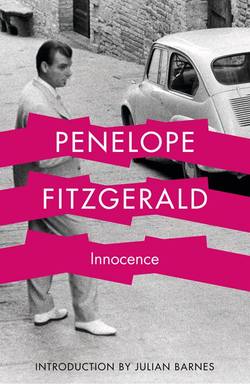Читать книгу Innocence - Julian Barnes - Страница 15
Оглавление9
Salvatore, who was not a temperate person, intensely regretted having gone to this particular concert. What irritated him as much as anything else was that his mother had repeatedly predicted that if he went north to practise in Milan or Florence he would be got hold of by some wealthy, fair-haired girl who would fasten on him and marry him before he knew what he was doing. Now, in point of fact this girl was badly dressed and not fair-haired, or anyway only in certain lights, for example in the artificial light of the auditorium and the rainy twilight outside would anyone have called her a blonde. His mind chased itself in a manner utterly forbidden to it, round thoughts as arid as a cinder track.
As a favourite son, he had been obliged to receive a quite unjust amount of his mother’s traditional wisdom. After he had been caught, she would say, not even with any real disapproval but with an infuriating nodding and smiling certainty, he would forget his home and even his family and they would be lucky ever to see him again in Mazzata. Curious that advice is just as irritating when it’s wrong as when it’s right.
She had baptized him Salvatore in honour of the Saviour, whereas his father would have preferred not to have had a christening at all, and wanted, quite ineffectually, to name him Nino, after Antonio Gramsci, or perhaps Liberazione or Umanità, or even 1926, since that was the year of his birth and also that of Gramsci’s last imprisonment. Domenico Rossi’s choice of names could be laughed at, and was laughed at, even by the Party members of Mazzata. His one ally was a part-time book-keeper, one of those not born to succeed, with the short-sighted mildness of a certain kind of violent revolutionary. This man, Sannazzaro, was not particularly welcome in the house and often sat talking to Domenico in a windowless room which was really part of the kitchen passage. The police rightly regarded him as entirely harmless. But to Salvatore, as he grew up, his father had meant much more than his mother. He couldn’t ever remember agreeing wholeheartedly and without embarrassment with his mother. On the other hand he put off for as long as he could the pain of admitting to himself that his father was wrong.
In 1913 Domenico and Sannazzaro had come up together from Mazzata in search of opportunities. They had gone as far north as their permits allowed, to Turin. Domenico had worked as a bicycle mechanic, Sannazzaro as an assistant book-keeper. They shared a copy of a weekly newspaper, Gramsci’s Grido del Popolo. In the Grido they read about an Italy, a possible Italy, without poverty, favours or bribery. Mass education would come about as a matter of course, but it would take the form not just of instruction but of question and answer between teacher and learner. Every sane man is an intellectual, but most are afraid to function as an intellectual should, that is, to stay in their own communities and organize them. If only a few thousand would do this, in Calabria, Campania, Sicily and Sardinia, the south could be as prosperous as the north. Only the lack of good sense or even common sense made it difficult to envisage the great human cities of the future with their intense, tumultuous and productive life. Under present conditions every Italian family struggled against every other to get advantages for itself. When the concept of property was abolished the struggle would be unnecessary. Even within the home there would be peace. Twelve brothers and sisters would be able to sit around a table without dispute. And the children’s education would no longer be left to women and priests. No adult would have a mortgage on a child’s character or its future. In the new community it would be free, at last, to choose.
Every life has lucky moments when sympathy opens one heart to others. To respond may be a mistake, not to respond must be ingratitude. The crowded print of the Grido came, in this way, in the back streets of Turin, to authentic life for Rossi and Sannazzaro. In the whole city they had not succeeded in finding one bar or café kept by a Mazzatano. Their own friendship, the weekly Party meetings and the Grido became their points of reference.
Before the strike of 1919 they met their frail leader in person. That was before he went to prison for the first time. Rossi even had the opportunity to ask him whether there was anything he could do for him, anything he could get for him or have sent to him by way of the warders. Gramsci had said that he wanted nothing except a loaf of Sardinian bread and an Italian translation of Kipling’s Jungle Book. But his smile as he said this, not a politician’s smile, showed that he recognized the impossible.
After the strike and the occupation of the factories, which was a total failure, Rossi and Sannazzaro of course lost their jobs. They sold their city shoes, resoled their boots with lengths of bicycle tyres, and walked the 750 kilometres back to Mazzata. By the time they arrived they were almost starving. The village received them without enthusiasm. They had left Mazzata as failures, and returned as failures. They still attended the local Party’s surreptitious meetings, in the back room of the chemist’s shop. When Gramsci, from his prison cell, dissociated himself from Stalin’s policies, he was declared an outcast and a heretic. The two friends, loyal to him still, became less important in local politics than the flies on the ceiling.
